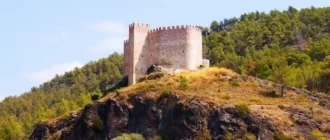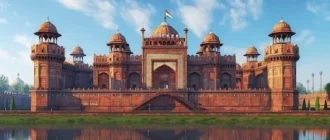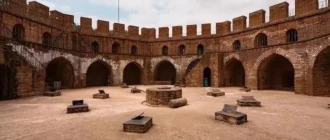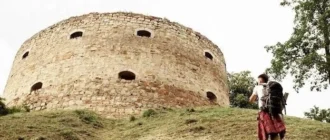Unveiling Maseru: A Comprehensive Guide to Lesotho’s Capital City
Nestled amidst the breathtaking landscapes of Lesotho, Maseru stands as a captivating blend of urban energy and cultural richness. As the nation’s bustling heart, this vibrant city invites exploration, offering a glimpse into Lesotho’s history, traditions, and natural beauty.
Introduction to Maseru: The Heart of Lesotho
Perched on the banks of the Caledon River, marking the very edge where Lesotho and South Africa meet, lies Maseru, the vibrant capital city of the “Kingdom in the Sky.” More than just a political center, Maseru embodies the spirit of Lesotho, a harmonious blend of modern aspirations and deeply rooted traditions. Founded in 1869 as a humble police camp during the country’s time as a British protectorate, Maseru has evolved into a dynamic city, home to approximately 330,000 residents, reflecting Lesotho’s rich cultural tapestry.
Today, Maseru pulsates with a unique energy. Modern buildings stand tall against a backdrop of the majestic Maloti Mountains, creating a captivating contrast. As the country’s economic hub, Maseru bustles with commerce and activity, yet it retains a distinctly laid-back atmosphere, characteristic of Lesotho’s peaceful ambiance. The city’s heart beats to a rhythm that seamlessly interweaves tradition and modernity, where the echoes of history resonate amidst the dynamism of a growing urban center.
Whether one seeks cultural immersion, thrilling adventures in the surrounding natural wonders, or simply a taste of urban life with a touch of Basotho charm, Maseru offers a unique and unforgettable experience. This introduction serves as a gateway to understanding the essence of Maseru, inviting you to delve deeper into the heart of Lesotho and discover the treasures that await.
A Traveler’s Guide to Reaching Maseru
Reaching Maseru, the mountainous heart of Lesotho, is an adventure in itself, with options available for those seeking convenience or a more scenic approach. For international travelers, the most common route is flying into Moshoeshoe I International Airport (MSU), located just outside the city limits. This modern airport welcomes flights from major South African cities such as Johannesburg and Durban, offering seamless connections to Lesotho.
Those who prefer a more grounded journey can opt for a picturesque road trip. Maseru is well-connected by road to South Africa, with the most popular route being the scenic drive through the Free State province. The border crossing at Maseru Bridge is typically straightforward, offering a smooth transition into Lesotho. It’s important to note that while car rentals are available in Maseru, road conditions within the country can be challenging, and a 4×4 vehicle is highly recommended, especially for exploring beyond the capital.
Once in Maseru, travelers will find a variety of transportation options available, from local taxis to private car hires, making it easy to navigate the city and its surroundings. Whether arriving by air or venturing on a scenic road trip, the journey to Maseru is the first step in an unforgettable Lesotho experience.
Navigating the City: Transportation in Maseru
Navigating Maseru offers a blend of adventure and ease, with a variety of transportation options catering to different preferences and budgets. For those seeking an authentic experience, the city’s minibus taxi system, known locally as “taxis,” provides an affordable and efficient way to traverse the main thoroughfares and reach neighboring towns. These vibrant, often crowded minibuses, follow designated routes, and passengers can flag them down or board at designated stops. Fares are generally inexpensive, and it’s customary to negotiate the price before embarking on your journey.
For a more comfortable and private experience, metered taxis are readily available throughout Maseru. These can be hailed on the street or booked through hotels or dedicated taxi ranks. While slightly more expensive than minibuses, taxis offer convenience and flexibility, particularly for navigating unfamiliar areas or traveling with luggage. Renting a car is also an option in Maseru, offering greater autonomy in exploring the city and its surroundings. However, it’s worth noting that road conditions within Lesotho can be challenging, and a 4×4 vehicle is advisable, especially for venturing beyond the paved city streets.
For shorter distances or exploring the city center, walking is a pleasant option. Maseru boasts a relatively compact city center, and many attractions, shops, and restaurants are within easy walking distance of each other. As you navigate Maseru, embrace the diverse transportation options and enjoy the journey as much as the destination.
Understanding the Cost of Travel: Prices in Maseru
Maseru, while a captivating blend of cultural experiences and natural beauty, offers travelers a relatively affordable destination compared to other Southern African capitals. Understanding the cost of various aspects of travel can help visitors plan their budgets effectively and make the most of their time in Lesotho’s vibrant heart.
Accommodation in Maseru caters to a range of preferences and budgets, from modest guesthouses to more upscale hotels. Expect to pay between $30 and $100 per night for a comfortable double room, with prices generally lower outside of peak season. Dining in Maseru presents a delightful fusion of local and international flavors, with options to suit every palate. Local eateries offer authentic Basotho dishes at very reasonable prices, while international restaurants and cafes cater to a more cosmopolitan taste, with meals averaging around $10-20 per person.
Transportation within Maseru is relatively inexpensive, particularly when utilizing the local minibus taxis. Expect to pay less than $1 for a short journey within the city. Metered taxis offer a more comfortable option, with fares starting at around $3. For those seeking greater flexibility, car rentals are available, with daily rates starting from around $30. Overall, Maseru provides a balance between affordability and quality, allowing travelers to experience the best of Lesotho without breaking the bank.
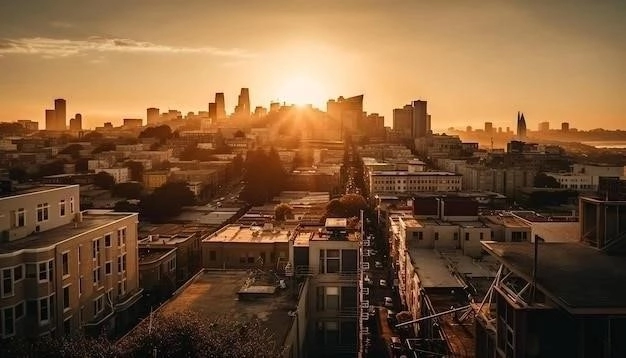
Exploring Maseru’s Cultural Heritage
Beyond its urban facade, Maseru pulsates with a rich cultural heritage, a testament to Lesotho’s vibrant history and the enduring traditions of the Basotho people.
Landmarks of History: Unveiling Maseru’s Past
Maseru’s historical tapestry is woven into the very fabric of its being, with landmarks whispering tales of its colonial past, struggles for independence, and the enduring spirit of the Basotho people. A journey through these significant sites unveils a captivating narrative, offering glimpses into the forces that have shaped this vibrant city.
Standing as a silent sentinel overlooking the city, Thaba-Bosiu, meaning “mountain at night,” holds a place of profound historical and spiritual significance. This imposing plateau served as the stronghold of King Moshoeshoe I, the founder of Lesotho, in the 19th century. Today, it stands as a national monument, its rocky slopes whispering tales of resistance against colonial forces. Within Maseru itself, the remnants of colonial architecture paint a picture of a bygone era.
The stately State House, with its Victorian-era design, serves as a reminder of Lesotho’s time as a British protectorate. Nearby, the Parliament Building, a modern structure, stands in stark contrast, symbolizing the country’s independent spirit. A visit to the Lesotho National Museum provides a comprehensive immersion into the nation’s history, showcasing artifacts, photographs, and exhibits that chronicle Lesotho’s journey from ancient times to the present day.
As you traverse Maseru, take time to pause and reflect at these historical landmarks. They serve as tangible connections to the past, offering insights into the events and personalities that have shaped Maseru into the city it is today.
Cultural Immersion: Things to Do in Maseru
Maseru invites travelers to delve into the heart of Basotho culture, offering a vibrant tapestry of experiences that extend beyond the typical tourist trail. Engaging with the local way of life is as simple as strolling through the bustling stalls of the Maseru Central Market. Here, the sights, sounds, and aromas of daily life captivate the senses. Explore an array of handcrafted goods, from intricate beadwork and woven tapestries to traditional Basotho hats, each piece reflecting the artistry passed down through generations.
For a deeper dive into Lesotho’s artistic heritage, a visit to the Morija Museum & Archives is a must. Located just outside Maseru, this cultural gem houses a fascinating collection of artifacts, documents, and photographs, providing invaluable insights into the history and traditions of the Basotho people. Art enthusiasts will find inspiration at the National Arts Gallery, showcasing a diverse range of contemporary and traditional Lesotho art, including paintings, sculptures, and textiles.
Immerse yourself in the rhythm of Basotho music and dance at one of the city’s cultural villages or live performance venues. Experience the energy of traditional performances, where the rhythmic clapping of hands and the melodies of indigenous instruments transport you to the heart of Basotho celebrations. As you engage with these cultural treasures, you’ll discover the true spirit of Maseru – a city where tradition and modernity coexist, offering a rich and rewarding experience for every traveler.
The Lesotho Tourism Festival: A Cultural Celebration
Every year, Maseru transforms into a vibrant tapestry of music, dance, and artistry during the highly anticipated Lesotho Tourism Festival. This annual extravaganza, held over several days, offers a unique opportunity to witness the vibrant cultural heritage of Lesotho come alive in a symphony of color, sound, and movement. The festival, often referred to as LETOFE, draws visitors from across Lesotho and beyond, eager to experience the heart and soul of Basotho culture.
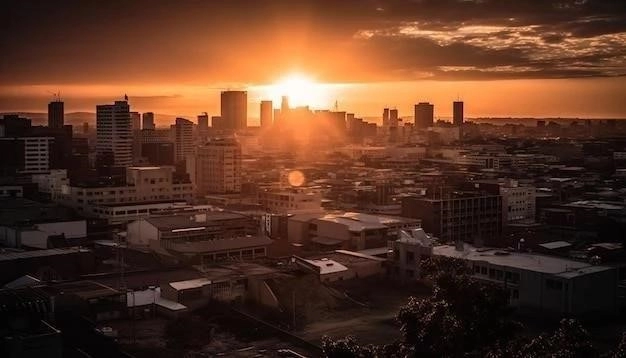
Staged against the backdrop of Maseru’s picturesque landscape, the festival features a captivating program of events showcasing the best of Lesotho’s artistic talents. Traditional music and dance troupes from across the country captivate audiences with their intricate rhythms, energetic footwork, and colorful costumes. The air reverberates with the sounds of indigenous instruments, each note carrying the stories and traditions passed down through generations.
Beyond the mesmerizing performances, the Lesotho Tourism Festival offers a platform for local artisans and craftspeople to showcase their skills and unique creations. Vibrant marketplaces pop up, brimming with handcrafted goods, from intricate beadwork and woven tapestries to traditional pottery and intricate wood carvings. It’s a shopper’s paradise and a chance to take home a piece of Lesotho’s cultural heritage. The Lesotho Tourism Festival is a celebration of the nation’s identity, a vibrant tapestry of tradition and modernity that leaves a lasting impression on all who experience its magic.
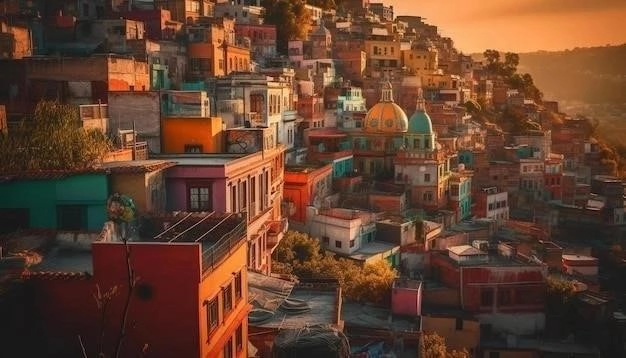
Thaba-Bosiu Cultural Village: A Journey into Basotho Heritage
Just a short drive from the bustling heart of Maseru lies Thaba-Bosiu Cultural Village, a living museum offering a captivating journey into the heart of Basotho heritage. Perched atop the iconic Thaba-Bosiu plateau, meaning “mountain at night,” this cultural gem provides a tangible connection to Lesotho’s rich history and the enduring traditions of its people.
Upon arrival, visitors are greeted by the warmth of Basotho hospitality and the sight of traditional rondavels, or round huts, dotting the landscape. These meticulously crafted structures, built using age-old techniques, offer a glimpse into the daily lives of the Basotho people. Step inside to discover intricately woven tapestries, handcrafted pottery, and traditional artifacts, each piece whispering tales of a vibrant cultural heritage.
Knowledgeable guides, often descendants of the original inhabitants, lead visitors on insightful tours, sharing captivating stories of King Moshoeshoe I, the founder of Lesotho, who sought refuge on this imposing plateau in the 19th century. Learn about the strategic significance of Thaba-Bosiu, which served as a stronghold during times of conflict and a place of unity and cultural preservation. Witness traditional dance performances, where the rhythmic movements and vibrant costumes tell stories of Basotho history, beliefs, and rituals.
Thaba-Bosiu Cultural Village is more than just a tourist destination; it’s a testament to the enduring spirit of the Basotho people, a place where the past comes alive, offering visitors a profound appreciation for the rich cultural tapestry of Lesotho.
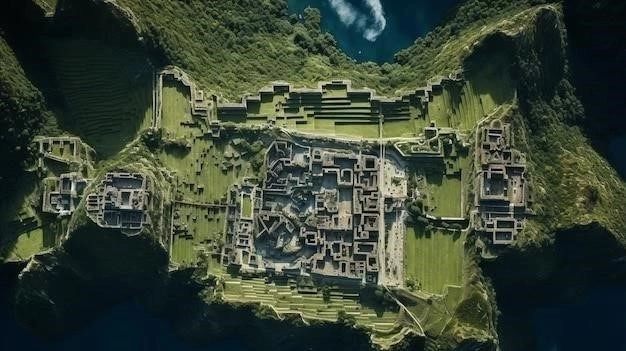
Experiencing Maseru’s Culinary Scene
Maseru’s culinary landscape is a delightful fusion of traditional Basotho flavors and international influences, offering a gastronomic adventure for every palate.
A Taste of Lesotho: Food and Restaurants in Maseru
Maseru’s culinary scene is a delightful fusion of hearty Basotho staples and international flavors, offering a gastronomic adventure for discerning palates. For a true taste of Lesotho, venture beyond the familiar and delve into the world of traditional cuisine. A cornerstone of Basotho cooking is “papa,” a thick porridge made from maize meal, often served with savory stews like “moroho,” a mixture of leafy greens and herbs, or “chakalaka,” a spicy vegetable relish.
Meat lovers should sample “seswaa,” tender, slow-cooked beef, often shredded and served with “papa” or bread. This national dish is a true celebration of Basotho flavors. For a more adventurous culinary experience, try “mogodu,” tripe cooked to perfection with onions, tomatoes, and spices. Maseru’s restaurant scene reflects its diverse culinary landscape, offering a range of dining experiences to satisfy every taste and budget.
Local eateries, often family-run establishments, provide an authentic taste of Basotho cuisine at very reasonable prices. For a more upscale dining experience, Maseru boasts a selection of international restaurants, from Italian trattorias to Asian fusion restaurants, offering a cosmopolitan alternative to traditional fare. Whether you seek the hearty flavors of Basotho staples or the familiar comforts of international cuisine, Maseru’s culinary scene promises a delightful gastronomic adventure.
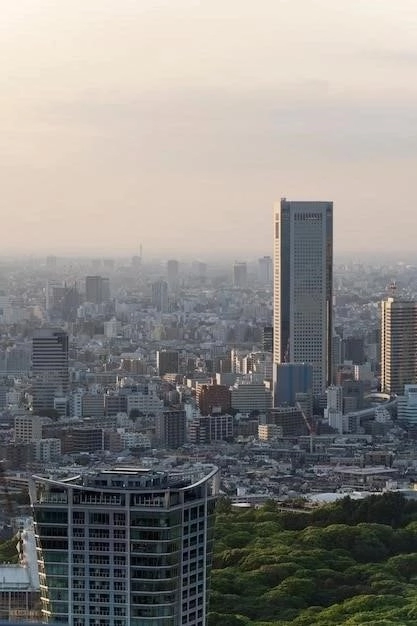
Shopping and Nightlife in Maseru
Maseru offers a blend of retail therapy and after-dark entertainment, from bustling markets to vibrant nightlife spots.
Retail Therapy: Shopping Experiences in Maseru
Maseru offers a diverse shopping scene, ranging from bustling markets overflowing with local crafts to modern malls showcasing international brands. For an authentic taste of local artistry, a visit to the Maseru Central Market is a must. This vibrant hub of commerce pulsates with life as vendors showcase their wares, from colorful textiles and intricate beadwork to handcrafted jewelry and traditional Basotho hats. The air is filled with the aromas of spices and the sounds of lively bartering, creating a sensory experience unique to this cultural melting pot.
For souvenirs with a distinct Lesotho flair, explore the stalls selling intricately woven tapestries, often depicting scenes of Basotho life or showcasing traditional motifs. Handcrafted pottery, from rustic clay pots to delicate teacups, makes for unique and memorable gifts. For those seeking a more contemporary shopping experience, Maseru boasts a selection of malls and shopping centers offering a mix of local and international brands.
Pioneer Mall, one of the city’s largest shopping destinations, features a range of clothing stores, electronics retailers, and supermarkets, providing a convenient option for both necessities and indulgences. Whether you’re seeking authentic handicrafts, fashionable finds, or simply a taste of local life, Maseru’s shopping scene offers something for every taste and budget.
Maseru After Dark: Exploring the City’s Nightlife
As the sun dips below the horizon, casting a warm glow over the Maloti Mountains, Maseru awakens to a vibrant nightlife, offering a range of entertainment options for night owls seeking to experience the city’s energetic pulse. While not as frenetic as some of its South African counterparts, Maseru’s nightlife scene presents a more laid-back and intimate atmosphere, where locals and visitors alike gather to unwind and enjoy the city’s after-dark charms.
For a taste of local flavor, venture into one of Maseru’s lively pubs or “shebeens,” as they are known locally. These often-unassuming establishments pulsate with the rhythms of African music, offering a chance to mingle with friendly locals and experience the warmth of Basotho hospitality. Here, you can enjoy local beers, sample traditional brews, and dance the night away to the infectious beats of kwela or Afro-pop.
For a more sophisticated evening, Maseru boasts a selection of stylish bars and lounges, many located within hotels or entertainment complexes. These venues offer a more cosmopolitan ambiance, with curated cocktail menus, live music performances, and stunning views of the cityscape. Whether you seek a lively evening of dancing and socializing or a more relaxed atmosphere to unwind with a drink, Maseru’s nightlife scene offers something to suit every taste.
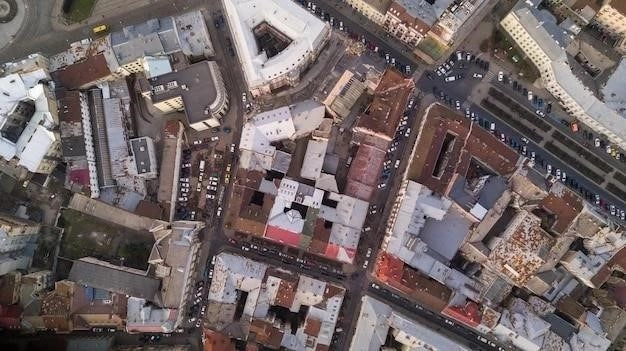
Discovering Natural Wonders Around Maseru
Venturing beyond Maseru’s urban heart reveals a breathtaking tapestry of natural wonders, from towering mountain ranges to cascading waterfalls.
Maluti Mountains: Majestic Backdrop of Maseru
Forming a breathtaking backdrop to the city of Maseru, the majestic Maluti Mountains, often referred to as the Drakensberg Mountains, stand as a testament to the awe-inspiring power of nature. Their jagged peaks, often dusted with snow during the winter months, create a dramatic contrast against the azure sky, offering a visual feast for the senses. These mountains, steeped in legend and lore, hold a profound significance in Basotho culture, representing both a source of sustenance and a spiritual sanctuary.
For adventure enthusiasts, the Maluti Mountains offer a playground of exhilarating experiences. Embark on challenging hikes through pristine valleys, where crystal-clear streams meander through alpine meadows carpeted in wildflowers. Experienced climbers can test their skills on sheer rock faces, while those seeking a more leisurely pace can explore well-maintained trails leading to panoramic viewpoints.
As you ascend into the higher altitudes, the air grows crisp and cool, carrying the scent of mountain herbs and the faint echoes of birdsong. Here, amidst the rugged beauty, you’ll discover a sense of tranquility and awe that only nature can inspire. The Maluti Mountains are more than just a scenic backdrop; they are an integral part of Lesotho’s identity, a source of national pride, and a testament to the enduring power of the natural world.
Katse Dam: An Engineering Marvel
Nestled amidst the breathtaking landscapes of the Maluti Mountains, a short distance from Maseru, lies Katse Dam, an awe-inspiring testament to human ingenuity and a vital source of water and power for the region. This arch dam, standing at an impressive height of 185 meters, is a marvel of modern engineering, its sheer scale and grandeur leaving visitors breathless.
Katse Dam serves as a cornerstone of the Lesotho Highlands Water Project, a multi-phased undertaking designed to harness the abundant water resources of the Maluti Mountains and provide water to Lesotho and neighboring South Africa. The dam’s reservoir, stretching across a vast expanse, shimmers like a sapphire amidst the rugged mountain terrain, creating a spectacle of breathtaking beauty.
A visit to Katse Dam offers a fascinating glimpse into the intricacies of large-scale engineering projects and their impact on both the environment and local communities. Guided tours provide insights into the dam’s construction, its inner workings, and the ecological considerations taken during its development. The surrounding area, transformed by the presence of the dam, offers opportunities for boating, fishing, and simply soaking in the breathtaking views of the reservoir and the majestic mountains beyond.
Mohale Dam: A Blend of Nature and Engineering
A scenic drive from Maseru, through the breathtaking landscapes of the Maluti Mountains, leads to Mohale Dam, a testament to the harmonious blend of human ingenuity and natural splendor. This concrete arch gravity dam, standing tall at 145 meters, is an integral part of the Lesotho Highlands Water Project, a visionary undertaking to harness the water resources of the Maluti Mountains for the benefit of both Lesotho and South Africa.
Mohale Dam, named after the nearby village of Mohale Hoek, impounds the waters of the Senqunyane River, creating a turquoise-hued reservoir amidst the rugged mountain terrain. The dam’s construction, completed in 2003, was an extraordinary feat of engineering, involving the excavation of millions of cubic meters of rock and the pouring of massive amounts of concrete.
Beyond its technical marvels, Mohale Dam is a sight to behold. The surrounding landscapes, characterized by rolling hills, verdant valleys, and the ever-present backdrop of the Maluti Mountains, offer breathtaking vistas. A visit to Mohale Dam provides a unique opportunity to witness the interplay between human innovation and the raw beauty of the natural world.
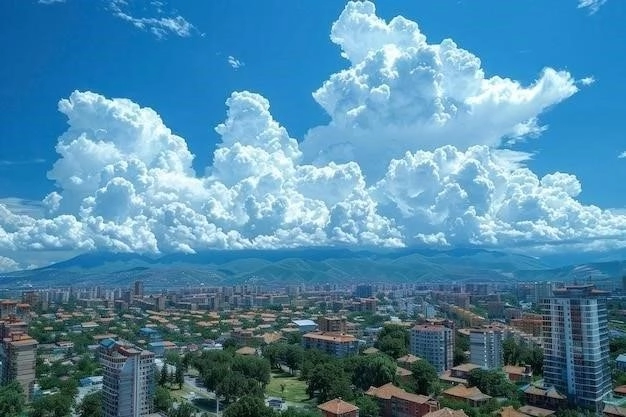
Beyond the City Limits: Day Trips from Maseru
While Maseru offers a captivating blend of urban and cultural experiences, venturing beyond its city limits reveals a treasure trove of natural wonders and historical gems.
Maletsunyane Falls: A Waterfall of Grandeur
A scenic drive from Maseru, through rolling hills and picturesque landscapes, leads to Maletsunyane Falls, one of Lesotho’s most breathtaking natural wonders. Plunging from a sheer cliff face, a dramatic cascade of water thunders into a deep gorge below, creating a spectacle that captures the raw power and beauty of the natural world. At 192 meters, Maletsunyane Falls is the highest single-drop waterfall in Southern Africa, its sheer magnitude a testament to the erosive forces that have shaped this dramatic landscape over millennia.
As you approach the falls, the roar of cascading water grows louder, creating an almost deafening symphony that echoes through the surrounding cliffs. The air is thick with mist, a refreshing respite from the warm Lesotho sun, as rainbows dance in the spray. Hiking trails wind their way through the rugged terrain, offering breathtaking views of the falls from various vantage points.
For the adventurous, there’s the opportunity to rappel down the cliff face alongside the falls, an exhilarating experience that provides an unparalleled perspective of this natural wonder. Whether you choose to admire its grandeur from a distance or challenge yourself with an adrenaline-pumping descent, Maletsunyane Falls is a must-see destination for any visitor to Lesotho.
Morija Museum and Archives: A Glimpse into Lesotho’s Past
A short distance from Maseru, nestled in the heart of the picturesque Morija village, lies a treasure trove of Lesotho’s history and cultural heritage – the Morija Museum and Archives. This captivating institution, established in 1861, stands as a testament to the nation’s rich past and the enduring legacy of its people. Stepping inside the museum is akin to taking a journey through time, each exhibit offering a glimpse into the events, traditions, and personalities that have shaped Lesotho into the unique nation it is today.
The museum’s collection is as diverse as it is fascinating. Ancient artifacts, unearthed from archaeological sites across Lesotho, provide insights into the lives of the earliest inhabitants of this mountainous kingdom. Delicately woven baskets, intricately crafted pottery, and traditional tools whisper tales of a bygone era, showcasing the ingenuity and artistry of the Basotho people.
A highlight of the museum is the extensive collection of historical documents and photographs, offering a glimpse into Lesotho’s journey from its founding by King Moshoeshoe I to its independence in 1966. The Morija Museum and Archives is not merely a repository of the past; it’s a living testament to Lesotho’s rich heritage, a place where visitors can connect with the nation’s soul and gain a deeper understanding of its cultural identity.

